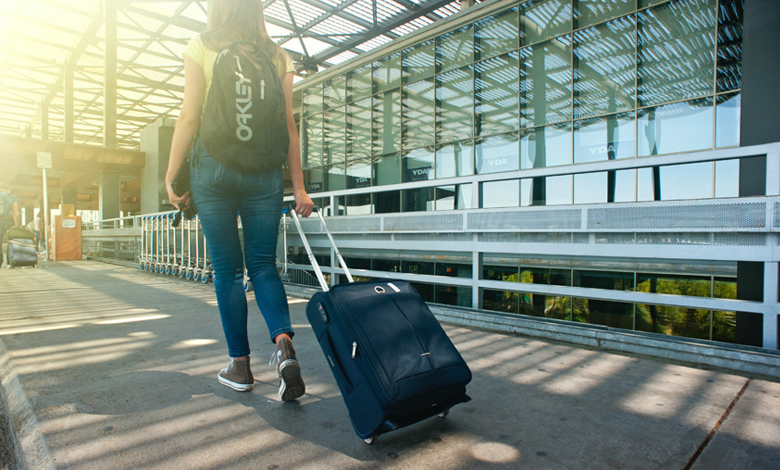4 Tips For Traveling As A Recovering Addict

As recovering addicts, we know about the challenges of Thanksgiving and Christmas, both of which are quickly approaching. There is already a lot written about avoiding alcohol and substances on these occasions. After all, they are times when it becomes more socially acceptable – and even expected in some places – to drink heavily. However, there is another factor that creates difficulties for recovering addicts: travel.
Traveling as a recovering addict is difficult for a number of reasons. You are leaving the routine that has helped you stay healthy. You might be away from your support system. It may be difficult to avoid complimentary drinks on an airplane. And if you take medication, stocking up and keeping a schedule can be a struggle.
To help you with these challenges, here are 4 tips for travelling as a recovering addict.
1. Make plans with your therapist or sponsor
My day-to-day schedule became incredibly important to me after leaving rehab. I was not too strict about the exact details, but there were certain requirements I expected myself to meet every day. When it came to traveling for the first time since my recovery, I feared the worst. There was simply no way I could maintain my schedule during my trip.
Speaking about it with my therapist helped. However, it was in helping me to make plans for the trip that they provided the most benefit. Together, we came up with ways to continue to achieve what I did with my usual schedule. This was not about getting things done. Rather, it was about not feeling directionless, distracting myself when necessary, working on my mental health, and grinding to a halt when I felt myself spiralling.
It was not as easy to achieve this during my trip, but I made concrete plans that would see me through the most difficult times. Speak to your therapist or sponsor about how to maintain your good work.
2. Consult your psychiatrist
If you suffer from a co-occurring mental illness, you may take chronic medication to treat it. Taking chronic medication can be a challenge even when nothing is changing around you. When you travel, it can become a major challenge. You need to make sure that you have enough during the trip, that you know where to go if you need urgent care, and when to take your meds if you are changing time zones.
One of my personal struggles with my medication when traveling is deciding when to take my nighttime meds. The medication I take at night gets me to sleep but is primarily used to treat depression and other mental illnesses. It also has severe withdrawals, which begin even if you take it a few hours late. I cannot simply continue taking it at the same time every day if I am in a different time zone because it will put me to sleep at the wrong time.
Navigating this challenge would have been almost impossible on my own. My psychiatrist helped me understand what I needed to do to avoid withdrawals while adjusting to taking my meds at an appropriate time. Their help saved me a lot of stress about what could have been a disastrous trip.
3. Find expat information (if you are leaving the country)
If you are traveling within the United States, you have a fairly good idea of how to get treatment if you need it when you are away. You might have to navigate issues with your insurance, but you will find information on where to go with relative ease. It will also help that your service providers are speaking English.
If you are traveling to another country, however, getting that information is more difficult. Before you leave home, search for expat websites and forums. There you will find Americans who have learnt to navigate the healthcare system during their time living in the country.
Take notes and bookmark any pages with helpful information.
4. Reach out to your support system
Don’t let pride get in the way of reaching out to the people who generally keep you grounded. You may feel like you should be able to take care of things while spending time away from your support system, but there is really no need for this. If you need help, trying to make it on your own only makes relapse more likely.
Even though you will be in a different place, your friends and family are one call away. They may not be as easy to get hold of if you are in a different time zone, but that should not stop you from taking the opportunity when the time is right.
Traveling as a recovering addict can be intimidating. However, with a bit of preparation, you can have a successful trip with minimal stress.





